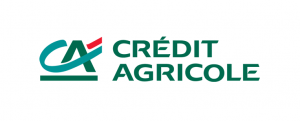 CUBA STANDARD — Just as the Obama administration is encouraging U.S. companies to take advantage of recent embargo easing measures, U.S. federal and state agencies fined France’s Crédit Agricole SA and its investment bank subsidiary CACIB $787 million, in part over Cuba-related dollar transactions.
CUBA STANDARD — Just as the Obama administration is encouraging U.S. companies to take advantage of recent embargo easing measures, U.S. federal and state agencies fined France’s Crédit Agricole SA and its investment bank subsidiary CACIB $787 million, in part over Cuba-related dollar transactions.
Promising to improve its internal control systems, the French bank agreed to settle investigations by the Treasury Department’s Office of Foreign Assets Control (OFAC), the Federal Reserve, and the New York State Department of Financial Services into alleged violations of U.S. sanctions against Sudan, Cuba, Burma and Iran dating back to 2003-2008.
In its announcement, OFAC cited a “widespread practice of removing, omitting, or obscuring references to U.S.-sanctioned parties” by CACIB, alleging 4,297 transactions involving banks in the United States between 2003 and 2008, in violation of — among others — the Cuban Assets Control Regulations. OFAC claims that CACIB officers, through subsidiaries in France and Switzerland, knowingly evaded U.S. sanctions.
According to OFAC, Crédit Agricole made 173 Cuba-related electronic transactions for a total of $97 million from 2003-2008.
“Crédit Agricole is committed to continue to strengthen its internal procedures and compliance programs regarding sanctions laws and will continue to cooperate fully with the U.S. and New York authorities regarding this matter, with its home regulators, the European Central Bank and the Autorité de Contrôle Prudentiel et de Résolution, and with the other regulators across its worldwide network,” the bank said in a statement.
Even though eased U.S. sanctions now allow the use of U.S. bank-issued credit cards in Cuba, no U.S. bank has taken advantage of the measure, in part due to complex compliance procedures imposed by regulators. Stonegate Bank, a Fort Lauderdale-based community bank, so far is the sole U.S. financial institution that has established a correspondent account with a Cuban bank.
The Crédit Agricole settlement continues a string of crackdowns against banks. In summer last year, BNP Paribas paid $8.7 billion in fines to settle U.S. investigations, among others over Cuban dollar transactions; as part of the settlement, the French bank agreed to stop doing business with Cuba altogether, in any currency. In February, Germany’s Commerzbank followed, with a $1.7 billion settlement.
Other banks reportedly targeted by U.S. investigations include France’s Société Générale, Germany’s Deutsche Bank AG, and Banamex, a Mexican subsidiary of Citigroup.
Asked earlier this year by Cuba Standard about concern among U.S. businesses with the U.S. crackdown, a Department of Commerce sanctions official responded that these cases are based on investigations preceding the U.S.-Cuba normalization process.
Cuban officials did not immediately respond to the Crédit Agricole announcement. Cuban authorities have repeatedly said that the Obama administration’s embargo-easing steps are insufficient and hinted recently that allowing U.S. dollar transactions and credit may be a precondition to allowing U.S. investments such as in telecommunications.
In yet another U.S.-Cuba twist to the U.S. crackdown against third-country financial institutions, the fines paid by foreign banks could actually help remove an obstacle to U.S.-Cuba business. Last year, the U.S. Justice Department, in announcing the sentencing of PNB Paribas said it was “exploring ways” to use part of the $8.9 billion to compensate “individuals who may have been harmed” by Cuba, Sudan and Iran.
“As a preliminary step in this process, the Justice Department is inviting such individuals or their representatives to provide information describing the nature and value of the harm they suffered,” a press release said, providing a weblink and phone number.
The possible seizing of Cuban aircraft by claimants through U.S. courts, for instance, is an obstacle for Cuban flights to the United States.
